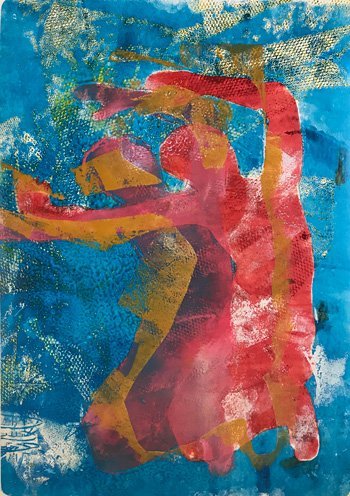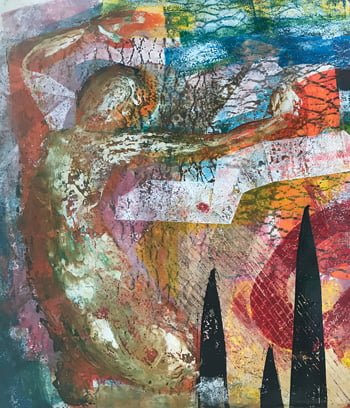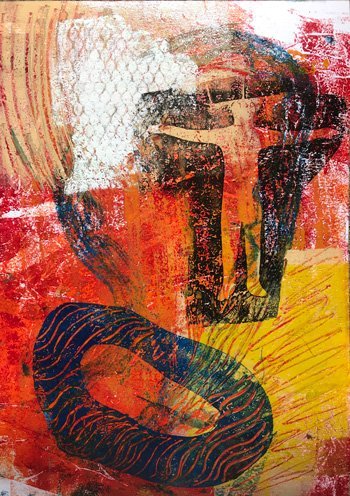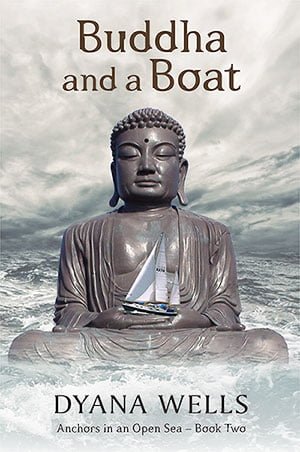The relevance of Buddha’s four noble truths in our modern lives
The fundamental and most important teachings of the Buddha are disarmingly simple.
- There is suffering
- There is a cause of suffering
- There is an end of suffering
- There is a way to the end of suffering.
It was a shock when Siddhartha – the Buddha as a young prince – realised the truth of suffering. Suffering was universal – he wasn’t exempt. He realised that all human beings are subject to the sufferings of birth, sickness, old age and death. Even the people he loved would suffer and he had no way of protecting them. So what did he really have to offer them? Finding his situation unacceptable, Siddhartha left his privileged life and set off into the wilderness to look for answers.
 It is interesting that he didn’t set out in pursuit of some high spiritual ideal. He set out because he found our actual human situation unacceptable. He was very practical and realistic. He didn’t want to escape his ordinary life, he wanted to find a way to improve it.
It is interesting that he didn’t set out in pursuit of some high spiritual ideal. He set out because he found our actual human situation unacceptable. He was very practical and realistic. He didn’t want to escape his ordinary life, he wanted to find a way to improve it.
He rejected the temporary blindness of privilege and luxury because it provided no real solution. He came to reject the refined non-material realms of meditation, the austere practices of self abuse, the abstract skyscrapers of philosophy. He wanted to live an ordinary life free from suffering.
Most of us would think that this is impossible. The four noble truths state that it is.
Surely we are very interested in what he discovered.
A lot of pretending goes on in life. We pretend life is great, that we are happy. We pretend we will live forever, we will never get old, never get sick or divorced, or lose a child.
Under the pretence lies fear. We indulge in magical thinking because we are scared of reality. This is suffering. So often life never quite lives up to our expectation of it. If we slow down enough to look directly at ourselves, we often discover an undercurrent of dissatisfaction, an irritation with our situation.
So often we don’t get what we want and when we do it doesn’t satisfy us as much as we had expected, and soon we are off chasing the next…. We find ourselves continually leaning out of the present, and rushing ahead to the next idea – or lost in nostalgia or regret for the past. Being satisfied with what is actually happening now isn’t a good option.
Maybe it is because the reality of our situation, which we may have been running from ever since we were born, is deeply unacceptable. Maybe we are all like Siddhartha. But do we have the courage to look at life directly and say this is not okay? And would we know what to do beyond becoming helpless or more controlling. This is a further taste of what the Buddha meant by the first noble truth – there is suffering.
In the second noble truth the Buddha says that suffering has a cause. The cause of suffering is clinging or craving. Put another way, the cause of suffering is resistance or aversion.
 To understand this noble truth we need to realise that suffering arises from the way we relate to life. Suffering isn’t an inherent aspect of life. Life is just what it is – an infinite interconnected matrix of never-ending birthing, maintaining and dying.
To understand this noble truth we need to realise that suffering arises from the way we relate to life. Suffering isn’t an inherent aspect of life. Life is just what it is – an infinite interconnected matrix of never-ending birthing, maintaining and dying.
Suffering could be defined as our inability to accept this fundamental insecurity. We find it very hard to accept the fleeting mercurial quality of each day. We do some kind of number on it. We demand it to be something else, that it fulfil our personal desires and requirements. When it doesn’t do this, we suffer. Suffering arises from our inability to meet and accept life as it presents itself to us, moment by moment. However life isn’t fundamentally about satisfying our desires.
We suffer because we cling, we grasp desperately. Suffering arises in the fear of losing what we have, of not getting what we want. In all cases the root of suffering is the same – it is our inability to accept life as it is.
This second truth has created profound change in my life. Whenever I am caught up in some difficult circumstance, all I have to do is remind myself that it is my resistance to what is happening that is my suffering. All I have to do is wake up to what is actually going on, all of it, and I am set free. In that instant the darkness evaporates and I become open and happy.
 It doesn’t matter what the situation is. If I can accept it totally, and if I can accept all my responses to it, whether they be grief, anger, resentment or disappointment, then I am no longer caught by any of it. The total awareness and acceptance of any situation brings radical transformation – freedom.
It doesn’t matter what the situation is. If I can accept it totally, and if I can accept all my responses to it, whether they be grief, anger, resentment or disappointment, then I am no longer caught by any of it. The total awareness and acceptance of any situation brings radical transformation – freedom.
In the third noble truth the Buddha states that there is an end of suffering. Nirvana is the end of suffering. Happiness is the result.
When we let go of clinging to a particular outcome or person or belief, suffering is extinguished. Freedom is described as the absence of greed, hatred and delusion. Freedom is the absence of clinging/craving and resistance/aversion. This is a huge teaching. These noble truths are a teaching on freedom, on finding happiness in this very life. They are very relevant to us.
The fourth noble truth states that there is a path to freedom. Walking the path is the journey of a lifetime. It is never over.
However the Buddha encourages us, ‘The path is good in the beginning, good in the middle and good at the end.’
He spent fifty years teaching the middle way. His teachings give us the tools to find the courage to be fully awake and present to what is actually going on in our lives. If that sounds easy, I can assure you it isn’t. It is the work of a lifetime and more.
Dyana Wells, September 2019




